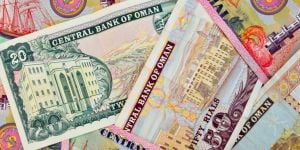
Moving abroad is a task which requires courage, perseverance, and sometimes, large financial investment. Funds can quickly disappear in transporting belongings, property costs, and other hidden charges like foreign exchange rates. This article from CurrencyFair outlines some key principles in saving for expats who are just starting their adventure or looking to reassess some aspects of their new lifestyle abroad.
Cleaning the Slate
Before going anywhere, it might be a good idea to look at where things are at currently - not only geographically, but financially. Are there any overhanging debts or expenses which could be holding money back? Something as simple as a monthly gym membership payment might need to be cancelled in good time before leaving for the other side of the world. Prospective expatriates may have a ‘moving-away' fund to bring along and invest in building a new life abroad. This can be expensive when done with a traditional bank, as foreign exchange rates can hide added charges. Alternatively, transferring over existing savings to a new bank account in a foreign destination is simple, stress-free and full of savings when done with a foreign exchange service like CurrencyFair - exchange rates begin at only 0.25 percent of the real rate.
Fail to Prepare, Prepare to…Spend
Budgeting and planning ahead are key parts to anyone's saving regimen, moving abroad or not. Setting off to a new country with no plan-of-action is a surefire way to spend on last-minute costs which could have been avoided with some foresight. Having some preparation helps to mentally orient the expat toward making savings a priority while in the process of migrating. Expats with some time to spare before moving away could maximise savings by using CurrencyFair's market exchange feature. The customer picks the ideal rate at which they would like to exchange, and when our system finds a match, they are notified. Thorough preparation and biding some time can really pay off - literally.
Research, Research, Research
Relocating to a different country can be a huge undertaking and researching as much as possible beforehand could make saving significantly easier. This includes perusing property prices, looking at delivery costs and evaluating smaller expenses like a morning coffee or fees on ATM withdrawals. Knowing these snippets of information will help an expat to begin to adapt their spending habits in a new location.
Compare where possible
Many benefits come with doing some detective work. When investigating which phone network to join, for example, it might be beneficial to shop around rather than going with the first search result. This will aid in figuring out which provider best suits the expat's needs, which are now on an international scale. For example, international minutes will prevail in importance over mainstream offers which tend to bypass this feature. Given this new but essential requirement, doing some homework could result in serious savings. Getting practice as a consumer with global needs who doesn't choose the first option will likely help finances long-term. When considering a method of payment for a new house, car or for moving savings to a new country, foreign exchange needs will be of considerable importance. Compared to the banks, specialised foreign exchange services like CurrencyFair can make money go further - after all, the service is purpose-built for people moving money globally.
Ask for Help
While actively learning and financially preparing to move is advantageous, there is no shame in asking for some advice. Consider unavoidable costs, like taxes: They are inevitable, but can be difficult to understand even before factoring in the varying systems of different countries. Not being afraid to reach out and ask for professional financial advice on how taxes will work in a new country is a great way to boost confidence in fiscal matters going forward.
Reach Out to a Support Network
Help could also come in more casual forms, such as reaching out to the new community. Talking to fellow expats in person or via websites and online forums can be an effective way to gather information and innovative advice that is specific to the country of origin or destination. A new friend might be proud to share how they managed to economically transport over their favourite armchair or where they have found the best value for petrol.
















